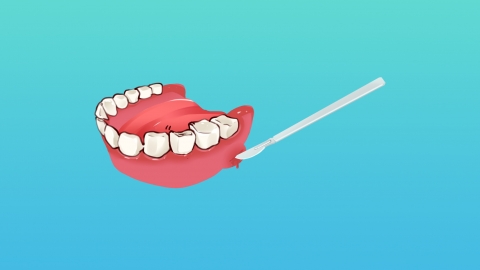Does dental caries develop more easily after fissure sealing?
Generally, pit and fissure sealing is a dental treatment used to prevent tooth decay by applying a resin material to the pits and fissures of teeth to form a protective barrier, preventing the accumulation of food debris and bacteria. Whether teeth become more prone to decay after pit and fissure sealing depends on the oral hygiene, the quality of the procedure, and individual factors. If experiencing dental discomfort, it is advisable to seek timely medical attention. Detailed analysis is as follows:

If the pit and fissure sealing is properly performed, with the sealant completely covering the pits and fissures, and good oral hygiene is maintained daily—including brushing teeth morning and night, rinsing after meals, and undergoing regular dental checkups—the sealed teeth generally are not prone to decay. The protective layer formed by the sealant effectively isolates food debris and bacteria, reducing the likelihood of developing cavities.
However, if the sealing procedure is improperly performed—such as incomplete coverage of the fissures, presence of bubbles, or partial detachment of the sealant—and oral hygiene is inadequate, food debris may accumulate at the edges of the sealant, promoting bacterial growth and potentially leading to tooth decay. Additionally, abnormal tooth development or reduced saliva production in individuals may also increase the risk of tooth decay.
After pit and fissure sealing, avoid biting hard foods with the sealed teeth to prevent the sealant from chipping or detaching. Maintain thorough daily tooth brushing and use dental floss to clean interdental spaces. Regularly visit the dentist to check if the sealant remains intact, and promptly repair or reapply the sealant if detachment or damage is detected. Furthermore, reduce consumption of sugary and acidic foods to lower the risk of tooth erosion.





